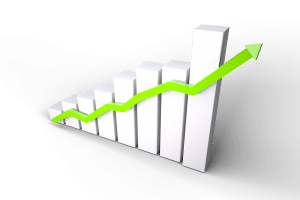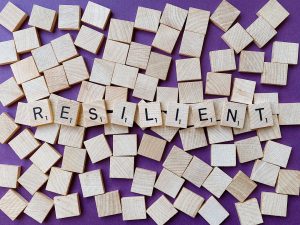We’re living in a time when getting professional mental health care is much easier than it used to be, and much less stigmatized. And that’s a good thing! There’s so much information out there, allowing everyone to learn more about the mental health issues that they or their loved ones could be dealing with. And generally, knowledge is power, right?
Yes, but there could also be a darker side to all of the sharing about mental health concerns that’s happening on social media, and the internet at large. Influencers who share their stories on social media, and even some of the so-called experts putting out information on mental health on the internet, are leading many people to self-diagnose conditions like ADHD and depression. And that might not be such a good thing. If you’re falling into the mental health self-diagnosis trap, you might want to consider what mental health professionals say about relying on the internet as a diagnostic tool, and even as a form of therapy.
The Rise of Self-Diagnosis
The wealth of information we have, and the rise of influencers and others sharing their thoughts on mental illness everywhere on the internet, has led to an explosion of mental health self-diagnosis, especially among younger people. There is a ton of user-generated content on social media platforms like TikTok and Instagram that encourage people to identify with a particular mental health issue.

Just check this out: hashtags on TikTok in 2021 include 2.7 billion views for ADHD (attention deficit hyperactivity disorder), 2.5 billion for Tourette’s, and 1.5 billion for DID (dissociative identity disorder). And most of the videos being consumed are not strictly informational videos. Rather, they are “personal experience” videos that detail how the creator of the video has struggled with a particular disorder, how they went about diagnosing their issue and how their diagnosis changed their life, what their new self-understanding means for them, how they’re addressing their condition, etc.
This type of content is huge. In fact, a recent study reported that of the 100 most popular ADHD videos on TikTok, the highest engagement was with personal experience videos, averaging nearly 3.9 million views each. But it’s not just TikTok content that’s driving people to self-diagnose. According to Joseph E. Davis, Ph.D., writing in Psychology Today about the numerous studies over the years he’s done on self-diagnosis of mental conditions, the people he has interviewed cite “Google searches, newspaper and magazine articles, talks with friends and family, and pharmaceutical advertisements as sources of stories and ideas about particular disorders that resonated with them and persuaded them that they suffered from a particular condition.”
But is this necessarily a bad thing? He also says that most of the people he spoke to sought help from professionals after “self-diagnosing,” so maybe the information available to them is not a bad thing, since it encouraged them to examine their own mental health. But Davis doesn’t fully agree.
Should We Leave It to the Pros?
Davis worries that people are treating mental illness as a kind of catch-all explanation for other issues in their lives. He also points out that people aren’t treating these conditions as they would any other health condition that needs a diagnosis based on specific parameters.
He says, “Interviewees in my study did not treat their self-labeled conditions as having objective, predefined medical meanings on the model of afflictions like diabetes or heart disease. Rather, they defined the conditions in their own self-referential terms, flexibly fitting a definition to their own way of thinking about the meaning of their experience and their self-identity.” He gives an example of a TikTok video describing the “symptoms” – wrongly – of ADHD as including “anxiety shivers,” “random noise making,” and “being competitive”.

And yes, that is certainly a danger of using something outside of the medical profession to “diagnose” yourself. There is a lot of misinformation out there, and a lot of temptation to cling onto somebody’s personal story as a way to explain what you’re struggling with. Davis stresses his belief that many people who self-diagnose a mental health condition are often doing so to find some meaning in – and even a community of people – surrounding “all manner of troublesome, frustrating, and disappointing experiences.”
In other words, he believes that a lot of people are stressed, overwhelmed, exhausted, unhappy at their jobs, etc, and are searching for insight, relief, and other people who share their experiences. And that’s easy to understand. But he and other experts are adamant that a mental health diagnosis should only be made by a mental health professional, since these assessments can be complex, and need a trained, objective eye.
Not only that, but some experts worry that this explosion of people encouraging others to self-diagnose could actually cause its own problems. In one extreme case, Dr. Adeola Adelayo, MD, a practicing psychiatrist with Banner Behavioral Health Hospital, says “We’ve seen an explosion of Tourette-like tics in our unit and every single case has been linked with watching countless TikTok videos about people with Tourette syndrome. [They] don’t have Tourette’s, but they aren’t pretending either. They have a functional movement disorder as a result of stress and possibly underlying anxiety or depression which may or may not have been properly diagnosed.”
After a series of individualized treatment plans and two weeks off of TikTok, the patients were back to normal – the tics were gone – showing just how powerful and influential these TikTok videos can be.
That’s the worst case scenario, but even in the best case, a lot of experts just feel frustrated that we’re not leaving this to the pros. Says Dr. Adelayo, “It creates this horoscope type of effect. People see enough of these videos, they start to relate to any number of the potential symptoms and even begin to present with some of the same symptoms. The thing is psychological illnesses don’t happen that way. Just because you pee a lot, doesn’t mean you have diabetes. You just don’t have diabetes because you say you have diabetes.”
Is There a Positive Side to All This?
Are all mental health professionals completely bugged or distressed by the explosion of lay people “diagnosing” themselves? Not necessarily. Consider the perspective of Micheline Maalouf, a licensed mental health counselor, and owner of Serein Counseling in Orlando, Florida. A client of hers convinced himself that he was living with OCD because he watched a TikTok video and “checked off” all the symptoms he had.
He told her, “I saw this TikTok video about signs that you may have OCD. I resonated with some of the symptoms but not all, so I’m not sure if I have it. My situation wasn’t exactly like the person’s in the video, but it got me thinking.”
While Maalouf was careful to explain that diagnosing something like OCD is much more complicated than ticking off a checklist, she also says she is thankful for conversations such as these for two reasons. First, it means the client has some self-awareness, which is a good thing. And second, it provides her with more insight into her client and the potential issues they need to work on in therapy, regardless of whether the issues match the client’s self-diagnosis.
And self-awareness and insight can only be positive things, when coupled with an open mind about what you might be struggling with! It’s just important not to get stuck on a “diagnosis” that you are sure is correct.
And not only that, but social media, when used in a positive way, can actually foster a feeling of community and belonging for those looking for mental health answers. It’s really opened the door for people to get more comfortable with talking about neurodivergence, anxiety, depression, and trauma, and it has helped lift some of the stigmas from these issues, as well as from others like autism.
So it’s not all bad, but if you’re engaging with this type of social media, it’s important to be careful who you look to, and where you go, for advice. You should also remember that social media isn’t actually therapy, and that you should take a break from it when you need to! And if social media feels like it’s starting to affect your daily life, please talk to a professional.
The bottom line is, if you’re experiencing symptoms of a mental health issue, including the following, please speak to a mental health professional:
- Social isolation
- Irritability
- Decreased sleep
- Decreased academic/work performance
- Difficulty concentrating
But with that being said, if you are stressed, overwhelmed, exhausted, and/or unhappy, as Davis suspects many people who are falling into the self-diagnosis trap are, it is also in your best interest to seek help! There’s no need to guess at what’s troubling you, or to only find a connection through an app or a screen. There is help out there, there are people to connect with, and it’s 100% OK to ask for that help and that connection!
Co-written by Joanna Bowling


